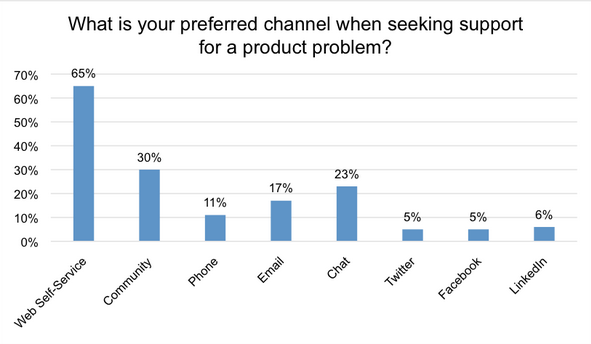Coveo Announces Free AI-Powered Search for Salesforce
Given the mass amount of data at our disposal today, the capability of searching for specific information or files alone will no longer satisfy, especially an increasingly millennial-dominated workforce. In early recognition of this trend, Coveo, a provider of intelligent search technology, launched Coveo AI in 2015 and expanded to all Coveo applications last year, including Coveo for Salesforce. On top of these, another prominent milestone for Coveo for Salesforce business happened early this week as the company announced the general availability of Coveo for Salesforce Free Edition to offer a fast, barrier-free onramp that infuses AI-powered search technology directly within Salesforce Community and App Clouds.
With the Free Edition that is now available on the Salesforce AppExchange, here are some prominent capabilities:
-
Machine learning capabilities that help users identify patterns and successful outcomes to retrieve better search results from all Salesforce content.
-
Easy drag-and-drop tools to customize their community with a rich, intuitive search user interface that matches the aesthetics of their site.
-
Coveo Usage Analytics which enable companies to continuously learn and improve, by understanding how people behave on-site, what they’re looking for and when they don't find content, why not.
-
Flexible deployment options, available for any community, as Coveo packages its open source javascript search UI in Lightning and Salesforce Visualforce components. It comes with an Interface Editor allowing users to customize every element of the search experience such as Faceted Search, Customizable Result templates, Configurable tabs, and so on.
"Search and relevance are at the very core of user engagement, personalization and self-service success,"  said Laurent Simoneau, President and CTO of Coveo. "We wanted to offer the Salesforce ecosystem a solution with the capabilities and ease of use needed to truly optimize their self-service experiences and applications. With Coveo for Salesforce Free Edition, they can now deploy an AI-powered search solution that not only delivers best-in-class relevance, in-depth usage analytics, and a rich user interface but also provides the advanced capabilities of our machine learning engine in minutes."
said Laurent Simoneau, President and CTO of Coveo. "We wanted to offer the Salesforce ecosystem a solution with the capabilities and ease of use needed to truly optimize their self-service experiences and applications. With Coveo for Salesforce Free Edition, they can now deploy an AI-powered search solution that not only delivers best-in-class relevance, in-depth usage analytics, and a rich user interface but also provides the advanced capabilities of our machine learning engine in minutes."
Positioned Furthest for Execution and Vision in Gartner MQ
In 2016, Coveo experienced substantial team growth, adding 100 employees, to reach a total of 300 employees worldwide and announced an increase in GAAP revenues by more than 80% as compared to CY2015. The company’s expansion wasn’t limited to only its team as Coveo stepped up its game in partner expansion, too. The intelligent search technology provider now has more than 40 leading system integrator (SI) partners in the Digital CX area and more than a dozen leading partners in the Salesforce ecosystem.
All these efforts and expansions brought to the organization a number of glorious recognitions from the industry’s leading market research firms. In that regard, Coveo has recently been positioned as the highest for execution and furthest for innovation leader in the Leaders quadrant of Gartner Magic Quadrant for Insight Engines. According to Gartner’s clients, Coveo offers exceptionally rich autosuggest capability, and this is the primary reason why they chose this platform. Another advantage the vendor has is its strategic partnerships with Sitecore and Salesforce.
Just like all platforms in the report, Coveo also has some areas to improve upon, and the areas of improvement are going beyond conventional metadata searches by making audio, video and graphical imagery files searchable in Coveo and offering nontextual query types, such as the use of an example image or video segment.
Channing Landscape of Enterprise Search
While the rising magnitude of content is bringing so many opportunities, especially for marketers, sorting out the information needed is getting overwhelming for both internal and external stakeholders. Getting results that look like a page of links is no longer considered as a service as we all are looking for answers to a question when we use any search capability. In short, the search is no longer just a way of retrieving information people seek. I mean, even the leading analyst firms have changed what they call enterprise search, illustrating that organizations can retrieve much more information through search interactions. For instance, Gartner now uses the term “Insight Engines” or “Proactive Search” while Forrester calls it “Cognitive Search.” The scope of enterprise search has changed.
According to Gartner, the top three business drivers that require investment in insight engines are innovation, operational efficiency, and business process outcome improvement. To tackle these, organizations need to save time and frustration for both their customers and employees. Considering the younger generation has a lower tolerance for hassle and high expectations for search thanks to Google, businesses that can deliver existing or synthesized information proactively or interactively in the context of employees and customers at timely business moments will be the winners.
To help their customers have a more efficient business process, vendors need to offer extensive proactive features for alerting users to important information that is outside the search process. In other words, they need to let the information find the user when and where he/she needs it. Achieving this mostly boils down to enterprise metadata management as it maximizes the value to the investments in those formerly-siloed initiatives.
Today, services with 32 percent and manufacturing with 30 percent are the largest adopters but the adoption of the enterprise search technology powered by machine learning and artificial intelligence is on the rise. In fact, the global enterprise search market is expected to reach USD 5.02 billion by 2020, according to the study conducted by Hexa Reports. The main drive behind this unprecedented growth is the change in consumer behavior. Today, modern customers tend to be self-researchers so they search your website for more information to get answers to their questions, long before they create contact with sales or a support department.

My POV
Until today, enterprises have been only really scratching the surface in terms of search’s vast capabilities across all business experience. However, today, in conjunction with the escalating adoption of artificial intelligence and the rising magnitude of content, businesses demand technologies that can extract meaning from data to support decision making which puts a great deal of pressure on vendors. Therefore, the vendors that can accomplish proactive delivery and interaction of relevant insight at timely business moments have an upper-hand in the competition. Vendors should keep in mind that figuring out where the data is, what format it's in or what system to use to access it are no longer relevant to their enterprise customers.

Venus Tamturk
Venus is the Media Reporter for CMS-Connected, with one of her tasks to write thorough articles by creating the most up-to-date and engaging content using B2B digital marketing. She enjoys increasing brand equity and conversion through the strategic use of social media channels and integrated media marketing plans.